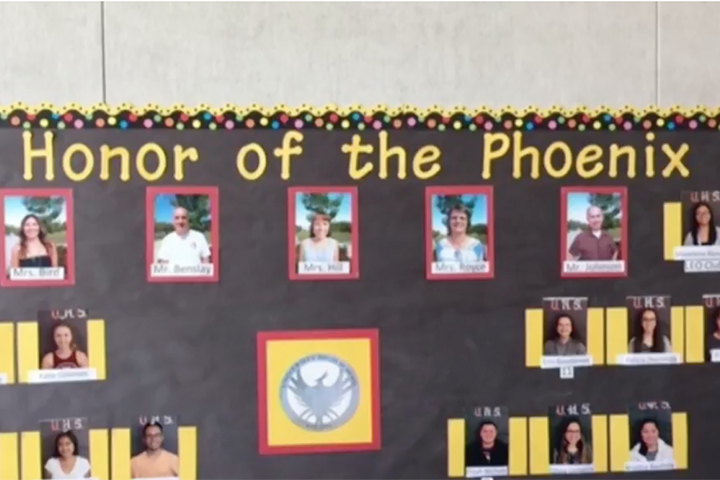Teachers and administrators at Nashville’s Rocketship United Academy want students to understand that the school’s core values are more than slogans on a poster, so they’re bringing them to life through daily rituals that “create a consistent, predictable, and positive school experience.”
Across the public charter school network, Rocketship schools share four primary values—respect, persistence, empathy, and responsibility—and each school crafts a fifth, individualized value with the help of parents and staff.
“Our core values fit within our mission to prepare our students to thrive in school and beyond by equipping them with critical character skills. Many of our students come from high-poverty communities,” 3rd-grade STEM teacher Tatum Schultz wrote recently for Rocketship.
“Research shows that children living in these communities experience more ‘toxic stress’ than children living in middle or upper class neighborhoods. Toxic stress makes it difficult for children to manage their emotions, resolve conflicts, and respond to provocations,” Schultz wrote. “That is why we create a consistent, predictable, and positive school experience that helps our students develop the social-emotional skills they need to succeed in the classroom and beyond.”
That development occurs in morning “community meetings” with students three times a week to focus on a character education curriculum tailored to upper- and lower-grade students. The program uses five characters with different temperaments and personalities to illustrate important concepts in ways young students can duly relate.
The approach is “designed to give students depersonalized opportunities to practice the skills to recognize their emotions, demonstrate care for others, establish positive relationships, make responsible decisions, and handle challenging situations,” Schultz wrote.
In upper grades, students learn to track their behaviors, feelings, and progress with a mood journal.
At Schultz’s school, parents, administrators, and others selected gratitude for the school’s fifth core value, and educators have incorporated exercises that transformed the concept from a word into “a feeling that will touch your soul when you walk through the front doors,” Schultz wrote.
One example, developed by Rocketship’s Positive Behavioral Interventions and Support team, is Gratitude Grams that allow students to express thanks and appreciation and show kindness to others in their own individual way.
“Every day, for seven days, students were given a half sheet of colored paper with a different student’s name on it,” Schultz explained. “Their responsibility was to watch gratitude spread. They had to write one sentence thanking that student for something they had done or they could capture appreciation for them as a peer.
“At the end of seven days, the students would receive their own name and could read what seven other students appreciated about them.”
Rocketship demonstrates what James Davison Hunter and Ryan S. Olson call “intentional” schools in The Content of Their Character, a summary of field research in school culture and character formation from the Institute for Advanced Studies in Culture.
In “intentional” schools, according to editors Hunter and Olson:
The moral and missional ethos of a school was reinforced through a range of practices, or routinized actions—some formal, some informal—all oriented toward giving tangible expressions to the school’s values and beliefs. These included school mottoes, honor codes, school assemblies, mission statements, dress codes, statues, stories, student handbooks and contracts outlining behavioral expectations, and the like . . . All of it bears on the likelihood children will ‘catch’ character.
The Jubilee Centre for Character and Virtues offers a model of virtue formation that can help educators ensure that the tenets of strong character are not only taught, but caught by students, as well as have a positive impact on students’ home life.









